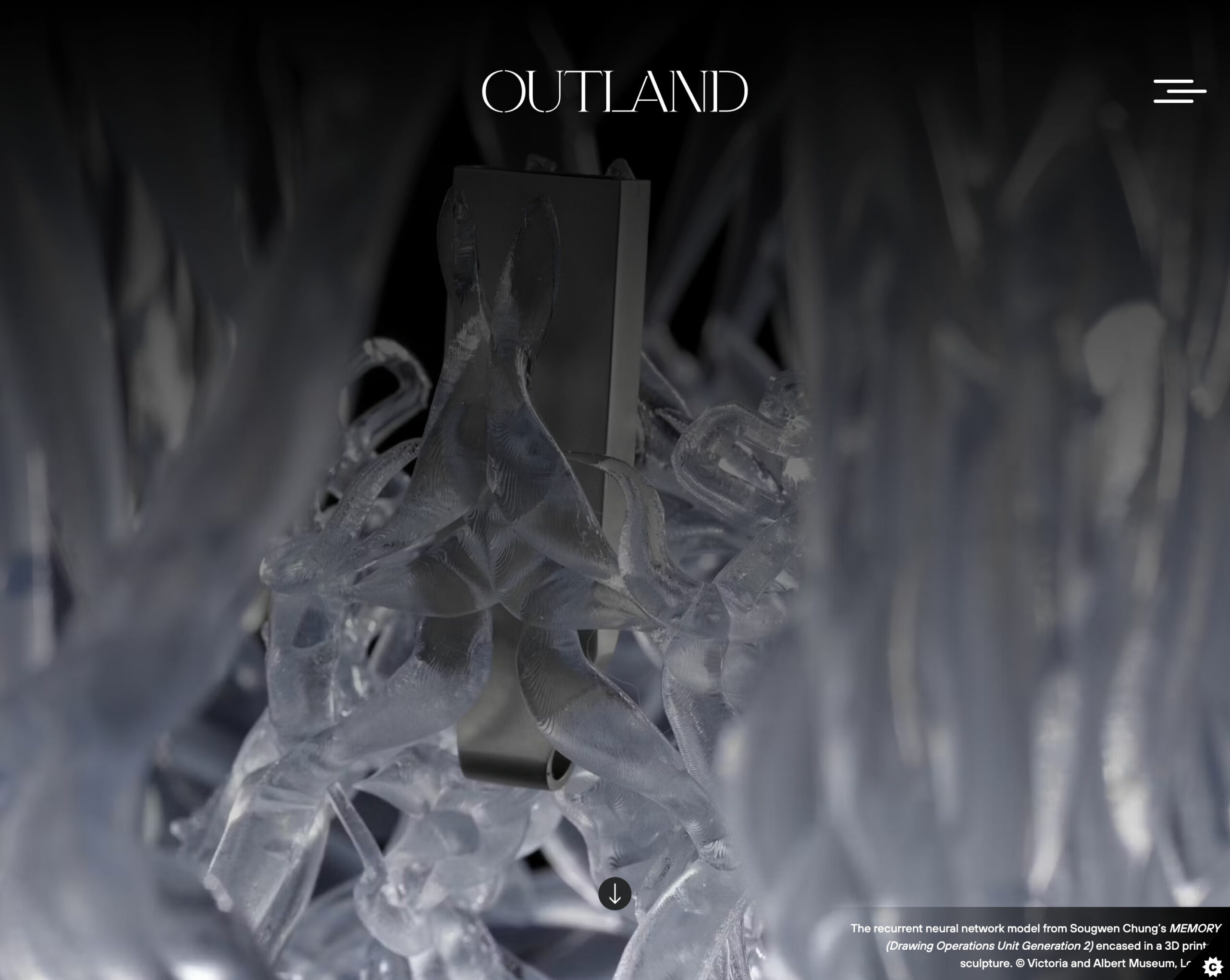In an in-depth article and interview with the V&A Museum's digital art curator Pita Arreola, the topic of collecting contemporary digital art is discussed, with the recent acquisition of Sougwen Chung's work MEMORY, serving as an example of hybrid collecting.
"The same questions come up when collecting contemporary digital art. You see it a lot in the NFT scene, with some people selling live code and others selling screenshots of the running code. At the V&A, the most recent acquisition we’ve finalized is a work entitled MEMORY (Drawing Operations Unit Generation 2), 2017–22, by Sougwen Chung, a Chinese-Canadian artist, researcher, and coder. Over the years she has programmed and built a series of AI-driven robots, using recurrent neural networks to “teach” the robots to mimic her own hand-drawn gestures. For Chung, the core of the artwork is the performance of the robot itself. We couldn’t collect the robotic arm used in MEMORY, because it’s still part of her artistic practice, so we had to think about how to acquire the piece in a way that would be meaningful for audiences now and into the future. As a museum, we want to collect works so that people can interact with all aspects of the software and the experience. That’s where hybrid collecting comes in. For MEMORY, we collected a print of a drawing made as part of a performance, a video where the artist explains how she created the work, a model of the neural network, and also a 3D-printed sculpture made using the same neural network."
